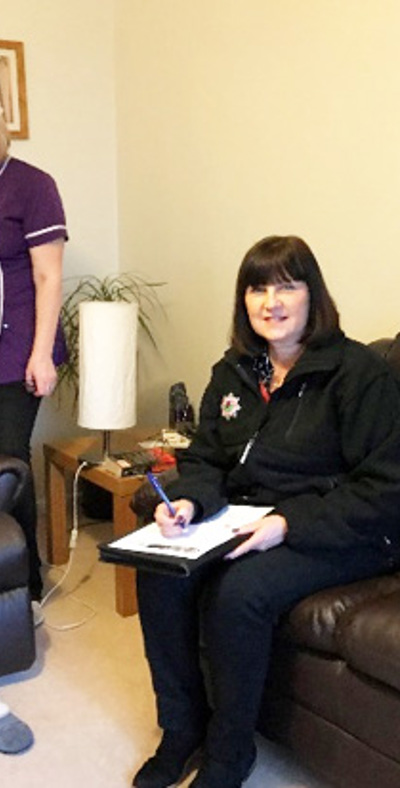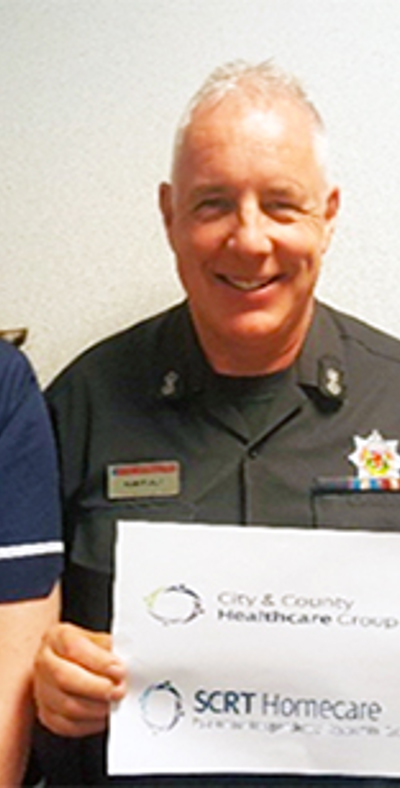Home fire safety visits
Find out what is a Home Fire Safety Visit, who can get one, and how to arrange a visit.
Help identify and protect people who would not be able to respond to a fire effectively and protect those who can't respond effectively
Many of us know a friend, relative, neighbour, those living alone, who would not be able to respond to a fire effectively.
In Scotland, over 30% of fire fatalities occur in homes where the person receives provided care from the health and social care sector.
There are several things that can indicate if someone is vulnerable from fire. These include a person's living situation, behaviour, and any physical or cognitive impairments.
If you are looking to see if someone is vulnerable to a fire, look out for:
If you know someone who could be at risk from fire, please tell them about our free Home Fire Safety Visits. We will work with you to make sure that the person is safe in their own home.
As ever, the Scottish Fire and Rescue Service are continually working to reduce fires within the home in order to protect the most vulnerable members of our community.

A pilot project was launched in Aberdeen City in September 2018 where SFRS joined up with care provider, Bon Accord Care who support thousands of people to live safely and independently in their own home.
Working in partnership, the Scottish Fire and Rescue Service have delivered fire risk awareness training to their Support Workers to assist them in identifying risks within the homes of those they visit.

This process provides a tailored support care plan incorporating a Fire Safety Assessment and referral pathway into SFRS resulting in a free home fire safety visit.
To date, over 40 Support Workers have been trained who now complete regular Fire Safety Assessments when visiting people they care for. From this, over 240 assessments have been completed generating 75 referrals for Home Fire Safety Visits for the Scottish Fire and Rescue Service.
As this partnership develops more training will be delivered by SFRS resulting in more assessments and visits being carried out across the city. Overall, this partnership contributes to improved community safety whilst changing attitudes and understanding of fire prevention in the home.
Partnership working in Stirling & Clackmannanshire
Our pilot project working with care providers continues to be rolled out across Scotland.
In April 2019, SFRS joined up with care provider, SCRT Homecare who support people to live safely and independently in their own home. SFRS delivered fire risk awareness training to SCRT Homecare Care Workers to assist them in identifying risks within the homes of those they visit.

This process provides a tailored care plan incorporating a Fire Safety Assessment and referral pathway into SFRS resulting in a free Home Fire Safety Visit (HFSV). To date, over 100 Care Workers have been trained who now complete Fire Safety Assessments when visiting people they care for.
It is anticipated that over 330 assessments will be completed through the partnership, generating high risk home fire safety visits if a risk to fire is identified. During a visit SFRS will put measures in place to reduce or eliminate risks.
Find out what is a Home Fire Safety Visit, who can get one, and how to arrange a visit.
Find out what a telecare system is and how it can help those vulnerable to be more fire safe
More fires start in the kitchen that anywhere else in the home. The following guide will provide you with advice to help prevent kitchen fires.